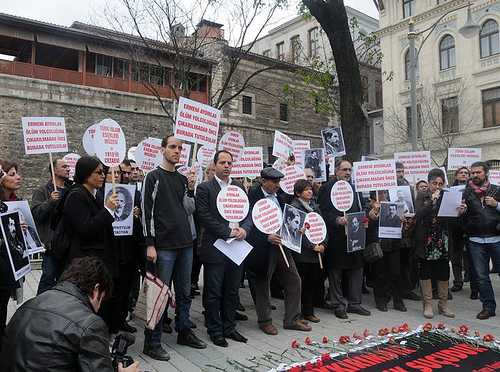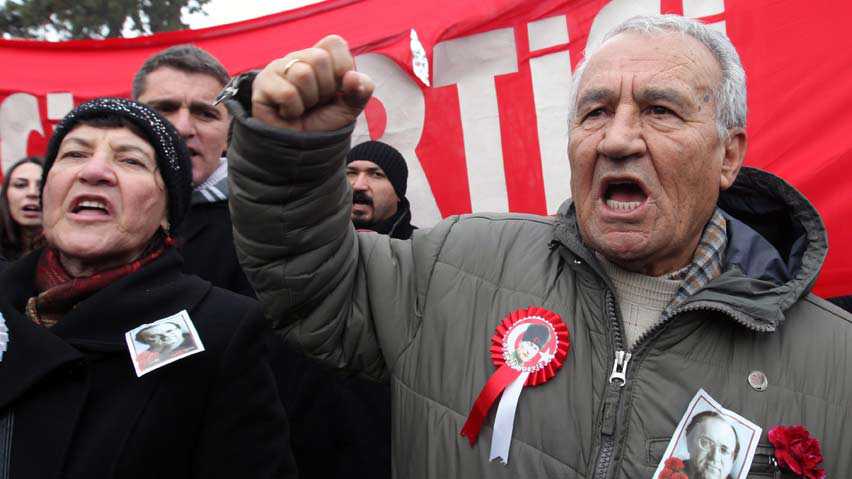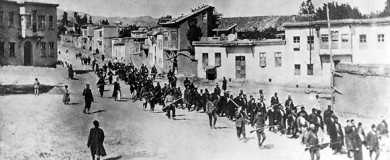Guest Column | A threatening silence
By NICOLE SADANIANTZ · April 22, 2013, 9:26 pm
I am half-Armenian by heritage. My father emigrated from Istanbul to the United States at the age of 17. But I was on the fence about writing this letter. I don’t like to disturb the peace. Politics overwhelms me. Then I searched through The Daily Pennsylvanian’s online archives for “Armenian genocide.” The most recent article related to the subject was from February 15, 2001. Apparently it’s been 12 years since this issue was covered by our newspaper. I decided it was due time to put it back on the table.
April 24 commemorates the day in 1915 when over 200 Armenian intellectuals and leaders were arrested, imprisoned and promptly executed. This was the culminating and revealing moment of the discrimination that had built through the latter part of the 19th century into the 20th century. But it would be only the beginning for the 1.5 million Armenians who would die over the next eight years. Mass deportations, forced marches through the desert, starvation, torture and the conscription of young boys into the army … The Ottoman government, namely the Young Turks, concealed the horrors under the chaos of World War I.
But there are reports and photographs from British and American ambassadors testifying to the truth of the experience. There are government documents suggesting that the massacres were systematically planned. And there are the words of Hitler that have, paradoxically, come to serve as evidence of the genocide: “After all,” he asked, “who remembers the Armenians?”
His question begs the question, “Why should we remember the Armenians?” Why do we need to talk about events that occurred now nearly 100 years ago? What would the purpose be? I’ll admit it’s a question I have frequently asked myself. I have no interest in casting a shadow upon the Turkish people of today. I have no interest in vengeance. So why bother?
Because Hitler did follow through with his plans for genocide. Because my father and his family emigrated to escape the oppressive environment in Turkey. Because contemporary Turkish writers including Hrant Dink and Orhan Pamuk have been persecuted for attempting to raise awareness of the genocide. Because innocent souls have been dying in Darfur since 2003. Because our nation has witnessed brutal acts of violence over the past year, from Aurora to Newtown to Boston.
Because no death is trivial. No death should be invisible.
I can understand the Turkish desire to deny or justify the annihilation in order to protect the honor of great-grandfathers. No one wants to admit that his or her family was involved in controversial acts. No one wants to feel guilt and shame running through his or her own veins. And I can understand our president’s desire to not explicitly name these acts “genocide.” He fears the decay of crucial alliances in precarious times.
But what about the honor of Armenian great-grandfathers? What about the memory of Armenian great-grandmothers? The children who should have become great-grandparents. The great minds. The great artists. We are still in mourning. We hear their cries and feel their thirst. And our grief cannot find closure until these traumas and deaths are recognized for what they were.
There is a way forward, a way that will prevent genocide from occurring again. This I believe. I believe that I do not want Turks, 19-year-olds like myself, to feel guilt and shame running through their veins. What happened 98 years ago is not their fault, and it should not be their burden. I believe that we should gather. I believe that we should lay out the cards for all to see. I believe that we should talk. I believe that we should work together to find peace, person-to-person. Then, perhaps, our governments will follow suit.
It’s an unfortunate legacy we’ve inherited. But no good can come of it so long as we continue to hide, continue to push this conversation aside. So as we meet each other today, I ask that we do so in peace and in earnest. I ask that we consider the tragedies that surround us and vow to not condone them with silence … To not condemn them to silence.
Nicole Sadaniantz is a College sophomore. Her email address is [email protected].
via The Daily Pennsylvanian :: Guest Column | A threatening silence.



![Concerning “Turkey and Armenia at Loggerheads”[1]: Why Turkey should not do what David.L.Ellis recommends 4 Concerning “Turkey and Armenia at Loggerheads”[1]: Why Turkey should not do what David.L.Ellis recommends](https://www.turkishnews.com/en/content/wp-content/uploads/2022/12/armenian-kids-turkish-flag.jpg)


